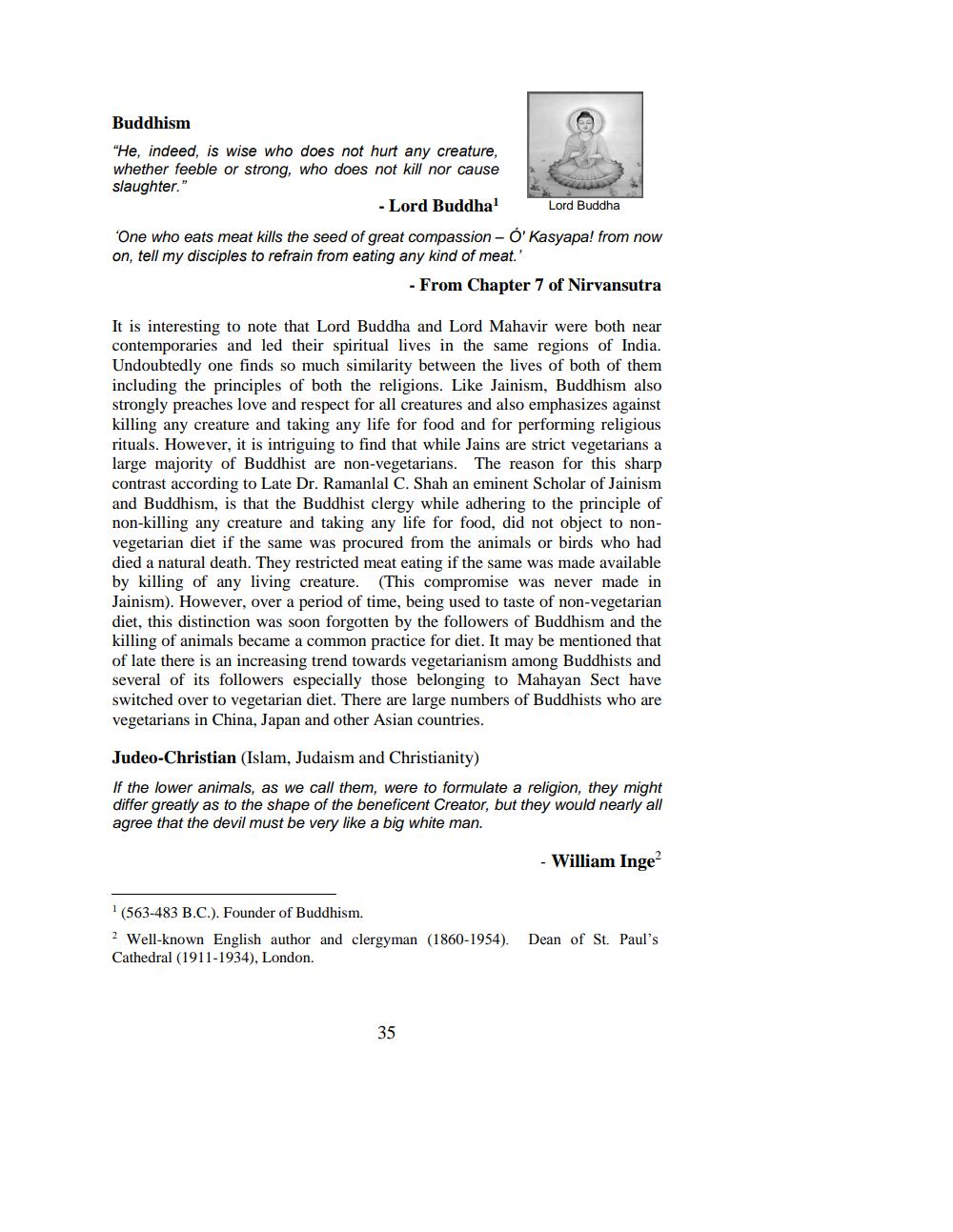________________
Buddhism
"He, indeed, is wise who does not hurt any creature, whether feeble or strong, who does not kill nor cause slaughter."
- Lord Buddha1
Lord Buddha
'One who eats meat kills the seed of great compassion - Ó' Kasyapa! from now on, tell my disciples to refrain from eating any kind of meat.'
- From Chapter 7 of Nirvansutra
It is interesting to note that Lord Buddha and Lord Mahavir were both near contemporaries and led their spiritual lives in the same regions of India. Undoubtedly one finds so much similarity between the lives of both of them including the principles of both the religions. Like Jainism, Buddhism also strongly preaches love and respect for all creatures and also emphasizes against killing any creature and taking any life for food and for performing religious rituals. However, it is intriguing to find that while Jains are strict vegetarians a large majority of Buddhist are non-vegetarians. The reason for this sharp contrast according to Late Dr. Ramanlal C. Shah an eminent Scholar of Jainism and Buddhism, is that the Buddhist clergy while adhering to the principle of non-killing any creature and taking any life for food, did not object to nonvegetarian diet if the same was procured from the animals or birds who had died a natural death. They restricted meat eating if the same was made available by killing of any living creature. (This compromise was never made in Jainism). However, over a period of time, being used to taste of non-vegetarian diet, this distinction was soon forgotten by the followers of Buddhism and the killing of animals became a common practice for diet. It may be mentioned that of late there is an increasing trend towards vegetarianism among Buddhists and several of its followers especially those belonging to Mahayan Sect have switched over to vegetarian diet. There are large numbers of Buddhists who are vegetarians in China, Japan and other Asian countries.
Judeo-Christian (Islam, Judaism and Christianity)
If the lower animals, as we call them, were to formulate a religion, they might differ greatly as to the shape of the beneficent Creator, but they would nearly all agree that the devil must be very like a big white man.
-William Inge
1 (563-483 B.C.). Founder of Buddhism.
2 Well-known English author and clergyman (1860-1954). Dean of St. Paul's Cathedral (1911-1934), London.
35




